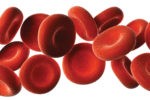Genetic Cancer Testing Children’s Mercy Research Institute

Story by Jenn Long
Genomic Answers for Kids with Cancers
Investigators at the Children’s Mercy Kansas City Research Institute (CMRI) have developed a genetic test for all children newly diagnosed with cancer or those who experience a relapse of their disease. The test – available free of charge to Children’s Mercy (CM) patients thanks to generous philanthropic contributions from the community – allows researchers and physicians to better understand treatment options for a child’s cancer, their chance of survival, and hereditary cancer risk factors for the patient and their family.
The whole-exome-sequencing-based test was developed by Midhat Farooqi, MD, PhD and Lisa Lansdon, PhD, both working in cancer genomics in the Department of Pathology and Laboratory Medicine. Dr. Farooqi also serves as Director of Molecular Oncology for the CMRI. Exome sequencing allows researchers to find a molecular diagnosis in families with children who have a genetic basis for their disease.
“We were lucky to have lots of support from the Hematology/Oncology Division, the Pathology Department, the CMRI, and the Genomics Core, as well as significant help from Byunggil Yoo, Maggie Gibson, Mary Rindler, Lee Zellmer, Brad Knipp, and Barb Mouron, amongst many others,” said Dr. Lansdon.
The genetic cancer test developed by Drs. Farooqi and Lansdon is in addition to the whole-exome sequencing test for children with inherited genetic diseases offered by the Genomic Medicine Center at CMRI since 2016. The new genetic test is run on both a tumor sample from a patient who has cancer, plus a sample of their normal, healthy cells, so the investigators can pinpoint genetic variants unique to the tumor (known as “somatic” variants) as well as the genetic variants underlying a patient’s hereditary risk for cancer (known as “germline” variants).
While many pediatric research institutions in the country conduct genetic sequencing of tumors, CMRI is one of the few institutions performing both research and clinical sequencing in-house on both tumor and normal DNA samples.
“If we know that a tumor has a specific genetic alteration, we can target it with precision therapy or a drug that works only for tumors with that specific genetic mutation.” – Midhat Farooqi, MD, PhD
Director, Molecular Oncology, Children’s Mercy Research Institute

Understanding the variants that are specific to a certain kind of tumor and a patient’s genetics may provide a more specific diagnosis of tumor type or subtype, additional prognostic information to help predict survival for a child diagnosed with cancer, and allow physicians to explore personalized treatment approaches that may be most effective for that patient. These personalized therapies tend to have less side effects as they usually target tumor cells more specifically – unlike standard chemotherapies that kill both tumor cells and normal cells.
“If we know that a tumor has a specific genetic alteration, we can target it with precision therapy or a drug that works only for tumors with that specific genetic mutation,” says Dr. Farooqi. “We are planning to use this test for every patient at Children’s Mercy who receives a new leukemia or solid tumor diagnosis as well as for those children whose cancer has relapsed.”
While genetic testing has been available for some time, the tests are not always well covered by insurance and patient families may be reluctant or unable to pay out-of-pocket expenses for the test. Through a framework provided by Children’s Mercy administration and philanthropic efforts, the new genetic cancer testing is available to all patients without any out-of-pocket expenses, which reflects the hospital’s commitment to high-quality patient care as well as Diversity, Equity, and Inclusion.
In addition, through the support of the CMRI, Drs. Farooqi and Lansdon are conducting sequencing on pediatric cancer patients who went through extensive clinical genetic testing, but that testing did not point to a specific genetic driver for that child’s cancer. The investigators are conducting the most advanced sequencing on these patients – called 5-base long-read genomic sequencing – to try and pinpoint tumor drivers for their cancers as well as find new factors affecting their hereditary cancer risk. This effort is an extension of one of the CMRI’s flagship research projects, Genomics Answers for Kids (GA4K) led by Dr. Tomi Pastinen, which looks for answers and novel treatments for pediatric patients with rare inherited genetic conditions. “Pediatric cancer is also a rare disease,” Dr. Farooqi says, “and I affectionately like to call this part of the project ‘Genetic Answers for Kids with Cancers’ (GA4KC)!”
The work of Drs. Farooqi and Lansdon builds upon CMRI’s longstanding commitment to better understand the genetics underlying pediatric cancer and then leverage that knowledge into potentially more effective treatment approaches.
CMRI is home to a state-of-the art biorepository that collects, processes, stores, and distributes biospecimens that support scientific investigation. Drs. Farooqi and Lansdon support a local research study led by Dr. Erin Guest that allows patients at CM to have their tumor samples and healthy samples banked in the repository for research purposes. Started in 2017, this study has now enrolled nearly 550 pediatric patients with cancer and has banked over 4,500 samples.
In 2019, Drs. Guest, Farooqi, and Pastinen, together with other CMRI investigators, undertook an ambitious and yearslong effort to begin sequencing the patients and samples in the CMRI tumor biorepository. This was largely thanks to financial donations from Black & Veatch, Big Slick, Braden’s Hope for Childhood Cancer and many others. Since then, samples from nearly 200 pediatric cancer patients in the repository have been sequenced by a range of different methods.
 In 2020, with help from the KU Cancer Center and CMRI, Dr. Farooqi received a grant from the National Cancer Institute to share these genomic data as part of the National Institutes of Health’s Childhood Cancer Data Initiative. Thanks to the work of the study team above and Dr. Irina Pushel, Byunggil Yoo, and Dr. Lansdon, these genomic sequencing data are now available to the wider community of childhood cancer researchers throughout the world.
In 2020, with help from the KU Cancer Center and CMRI, Dr. Farooqi received a grant from the National Cancer Institute to share these genomic data as part of the National Institutes of Health’s Childhood Cancer Data Initiative. Thanks to the work of the study team above and Dr. Irina Pushel, Byunggil Yoo, and Dr. Lansdon, these genomic sequencing data are now available to the wider community of childhood cancer researchers throughout the world.






